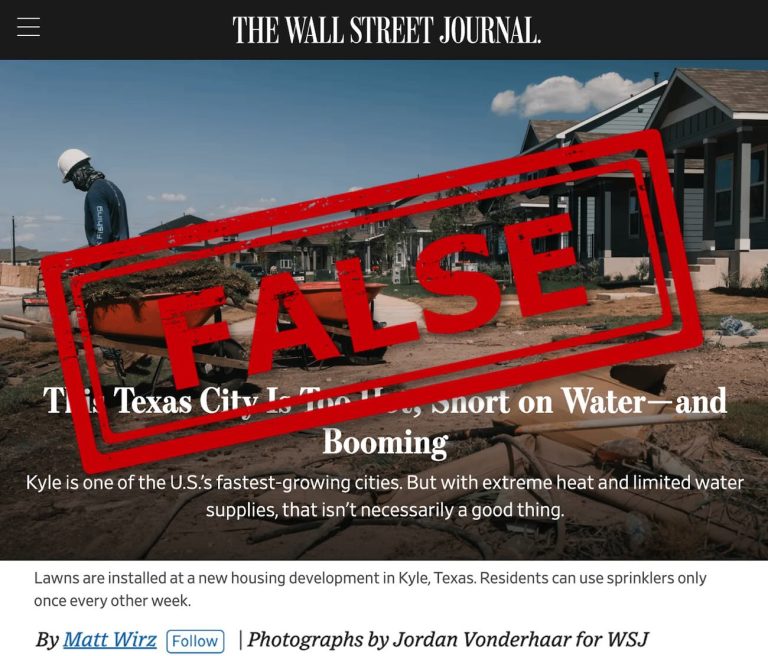
Media Myths: Fossil fuels have put Texas, the fossil fuel capital, even more at risk from high temperatures.
the truth: Fossil fuels have made Texas safer than ever from climate impacts, both hot and (far more dangerously) cold, but anti-fossil fuel policies are hindering that progress. [emphasis, links added]
A recent Wall Street Journal article described Texas as threatened by climate warming caused by fossil fuels. But as evidence, they point to an increase of just 200 heat deaths, ignoring an overall decline in climate deaths from fossil fuels.
An objective description of climate dangers and fossil fuels will look at what the overall trends in climate dangers are and the role of fossil fuels in that trend.
Across the world and in Texas, the answer is clear: Climate dangers are lower than ever, thanks to fossil fuels.
The global death rate from climate-related disasters has dropped by 98% over the last century, thanks to the cost-effective energy provided by fossil fuels to power air conditioning to control heat, heating to cope with the cold, and irrigation to Power to deal with droughts and storm warning systems to manage storms.
 Failure to recognize the reality that fossil fuels are insulating people around the world and here in Texas from climate impacts, The Wall Street Journal singled out one data point to falsely characterize fossil fuels as a growing climate danger: 200 more heat-related deaths since 2021.
Failure to recognize the reality that fossil fuels are insulating people around the world and here in Texas from climate impacts, The Wall Street Journal singled out one data point to falsely characterize fossil fuels as a growing climate danger: 200 more heat-related deaths since 2021.

Given that cold kills far more people than heat, and fossil fuels make us safer, it's disingenuous to dwell on the idea that about 200 people in Texas died from heat.
There are so few heat-related deaths today that for a state with a population of 30 million, there are probably 200 more deaths on the chart!

All else being equal, we would expect heat deaths to increase because:
(1) As the population grows, the absolute number of deaths increases; and
(2) Urban expansion creates concentrated heat islands, causing local temperatures to rise.
However, despite population growth, the number of U.S. heat deaths has changed little over the long term.

Even more disingenuous than obsessing over the few additional heat deaths in Texas is blaming “climate change” on fossil fuels, even though “Climate change” is a slow trend on a scale that spans more than 30 years and cannot be proven to lead to an increase in deaths within three years.

The anti-fossil fuel media blames fossil fuels for the small number of climate deaths that cause fewer climate deaths in the first place, thereby justifying a catastrophic agenda that will make us less vulnerable to climate impacts and much more prosperous overall reduce.
Electric grids across the United States are declining due to policies that reward unreliable power, prematurely close coal plants, criminalize nuclear power, and mandate the use of electric vehicles.
Things will get worse as the EPA's power plant rules reduce power supply and artificial intelligence increases demand.
In Texas, grid-busting policies are leading to deadly blackouts and power shortages. For example, the February 2021 disaster was caused by underinvestment in reliable power plants and their climate impact, a problem that came to a head when unreliable solar/wind power inevitably disappeared.
Anti-fossil fuel policies increase climate dangers Make it expensive or illegal to run the fossil fuel climate control machines that protect us from climate impacts. Therefore, these policies are actually anti-climate security or pro-climate danger policies.
Texas does not face the threat of fossil fuels, which make the climate safer. The real danger Texas faces is anti-fossil fuel policies— politically feasible thanks to false media reports about a dangerously hot world — could undermine their ability to get a handle on the climate.
Michelle Hung contributed to this work.
Read more energy talking points
